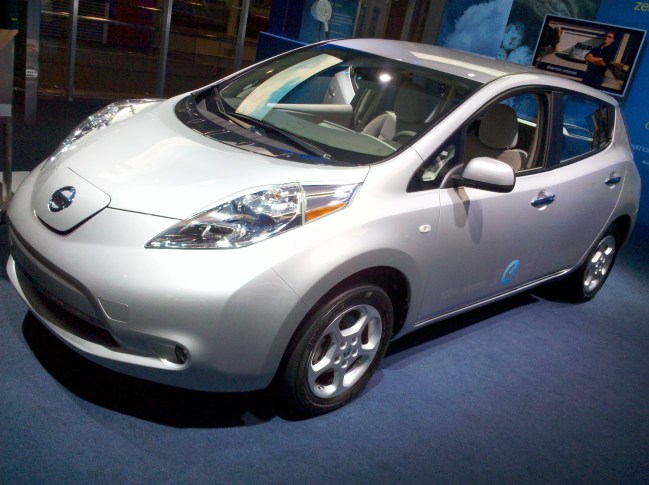 Not even high gas prices can convince people to buy electric cars. According to a new USA Today/Gallup Poll, 57 percent of respondents said that they wouldn’t buy an all-electric car, even if the price of gas rose above its already-astronomical levels.
Not even high gas prices can convince people to buy electric cars. According to a new USA Today/Gallup Poll, 57 percent of respondents said that they wouldn’t buy an all-electric car, even if the price of gas rose above its already-astronomical levels.
This finding spits in the face of President Obama’s goal of a million electric vehicles on the road by 2015, and the auto industry, which has already begun to make moves towards an all-electric fleet. And new federal regulations could require automakers to develop gas-electric hybrids capable of achieving 62 miles per gallon by 2025.
Upon further inspection of the poll, however, all may not yet be lost for proponents of electric vehicles. The question defined the vehicles in question as “an electric car that you could only drive for a limited number of miles at one time.” While this remains very much true for current electric cars — the 2011 Chevy Volt, for instance, can travel between 20 and 50 miles on a single charge — it won’t always be true, as battery technology improves. In fact, the upcoming generation of electric cars, like the Nissan Leaf and the Mitsubishi “i” can travel between 70 and 80 miles on a charge. But it seems that, for now, all-electric vehicles face an uphill climb.
Electric vehicles “”are very much niche vehicles,” says Edmunds.com CEO Jeremy Anwyl. “They find acceptance among a core group of passionistas, but too many questions remain for mainstream consumers.”
Research from JD Power and Associates indicates that all-electric vehicles won’t always be relegated to only the greenest corners of the consumer market. Sales of pure electrics will be slightly less than 11,000 this year, research shows, but will rise to nearly 100,000 sold by 2015. Total US light-vehicle sales are currently around 13 million, but are expected to rise to 14 million by 2015.
Nissan, whose all-electric Leaf debuted in December, took a more glass-half-full approach to the poll, saying that “as many as 40 percent are considering driving electric vehicles.” Nissan has sold about 1.044 Leafs, as of April.
Editors' Recommendations
- Don’t let the gimmicks fool you. The Ioniq 5 N is a serious track car
- Don’t want to visit a dealership? Buy a car online and have it delivered
- Powerful, high-end electric cars are 40% more likely to crash than gas models, study finds
- Tesla Model 3 is the world’s most-searched-for electric car, survey says
- Don’t ditch gasoline just yet: BMW argues electric cars are overhyped


